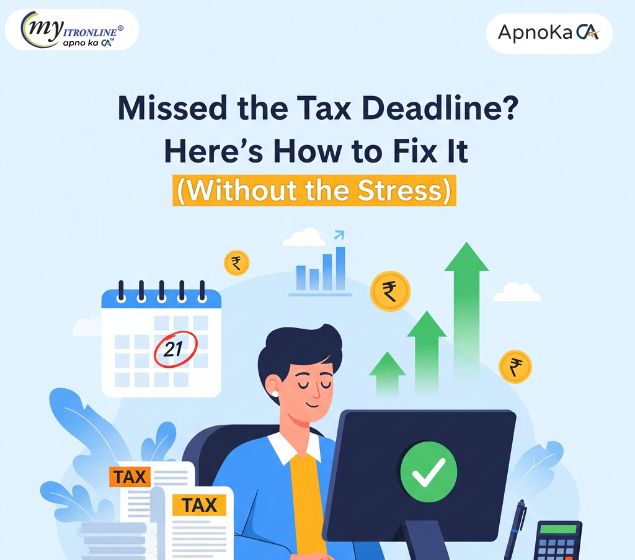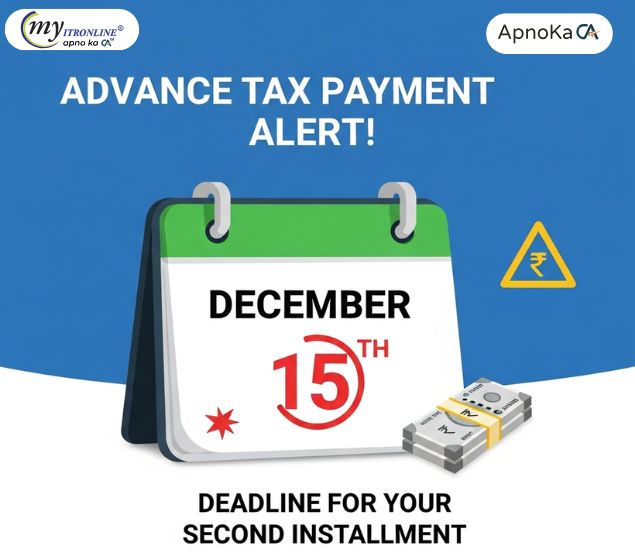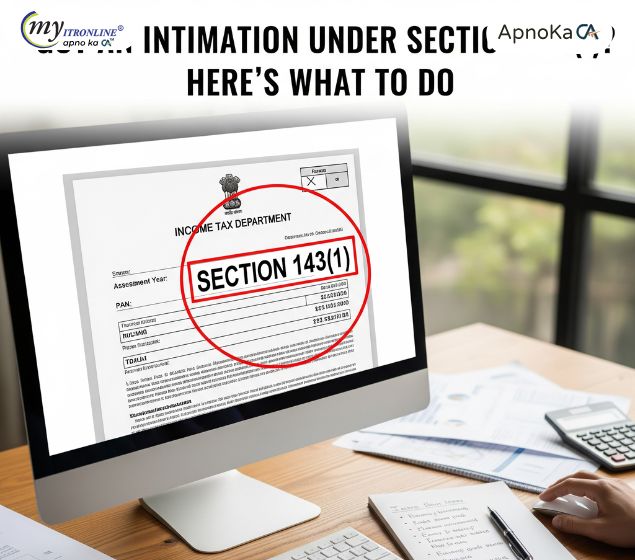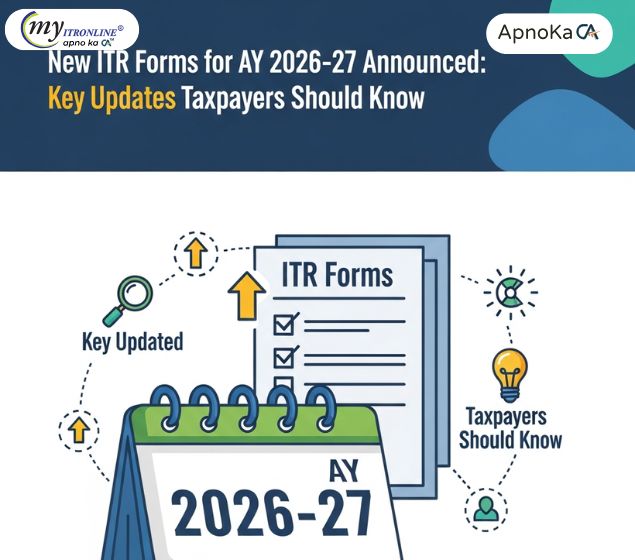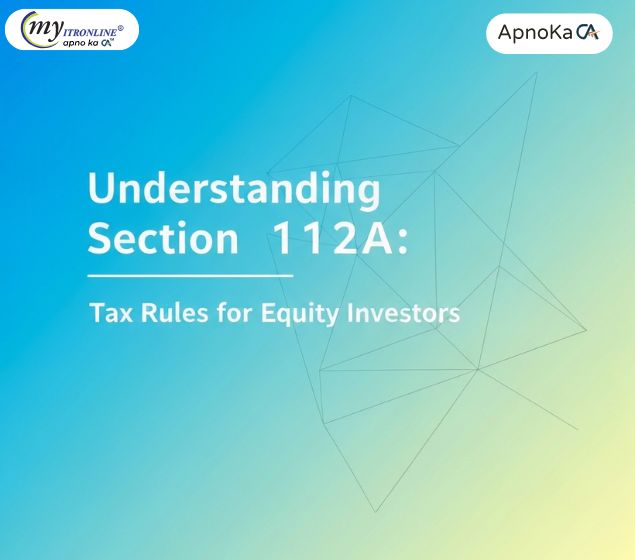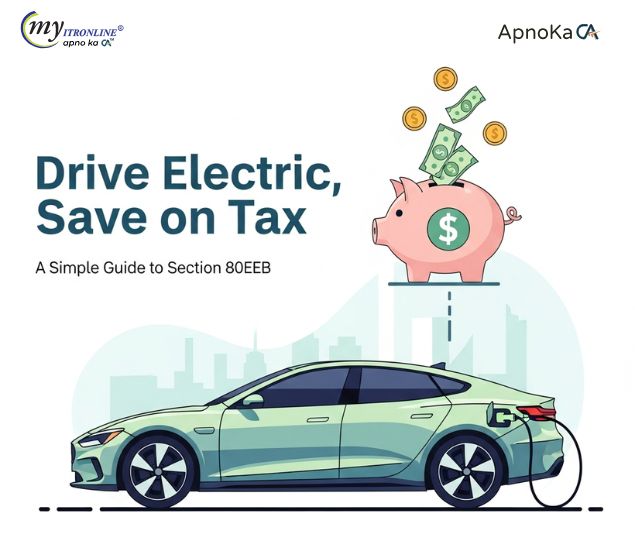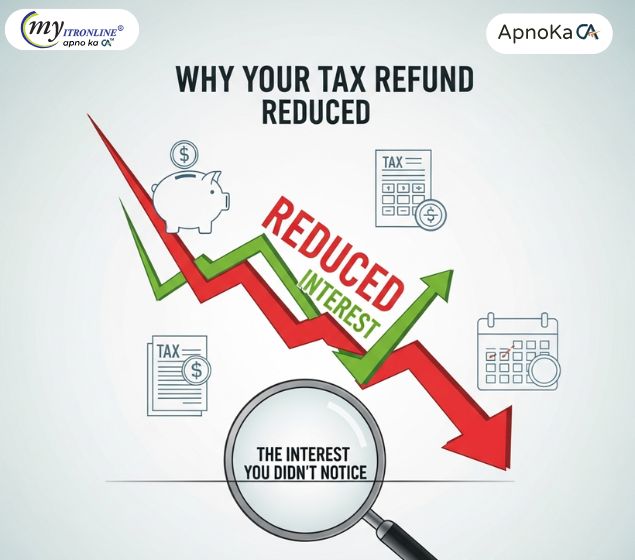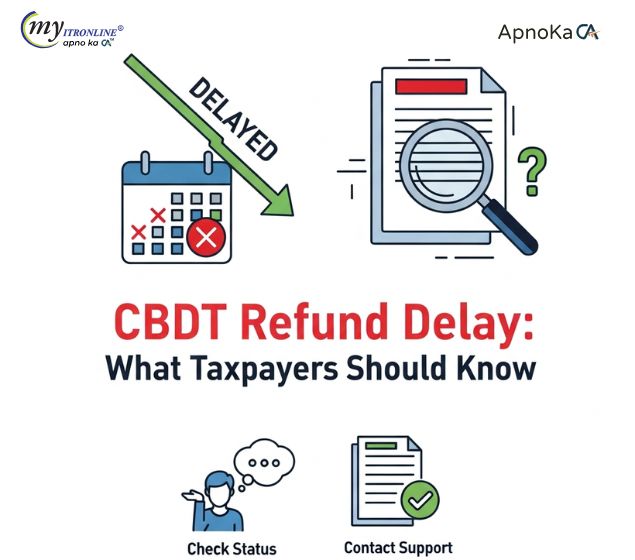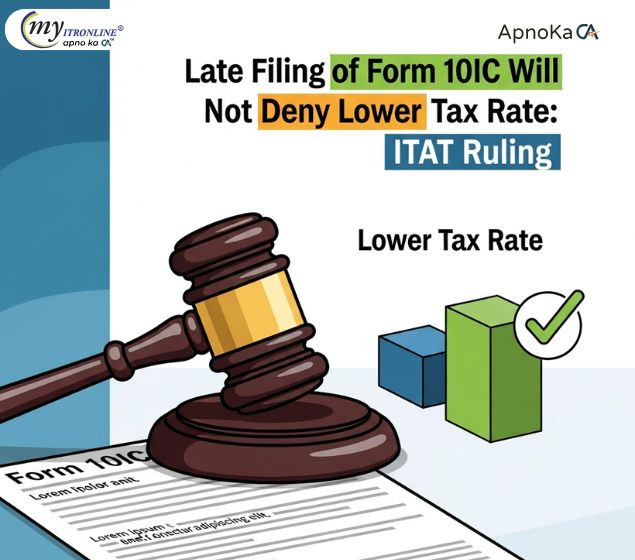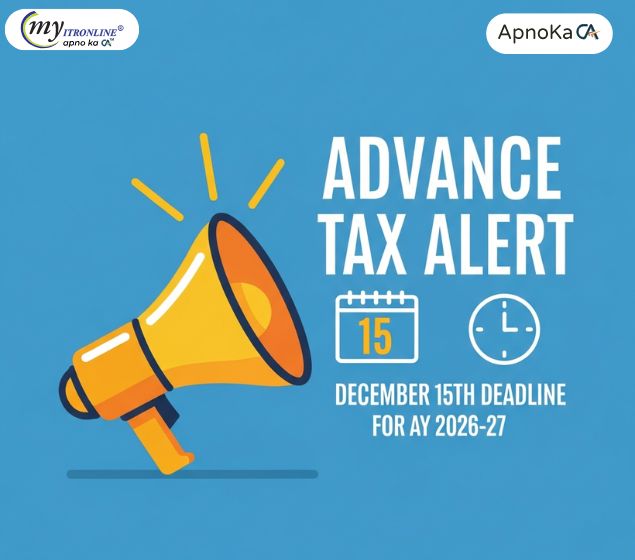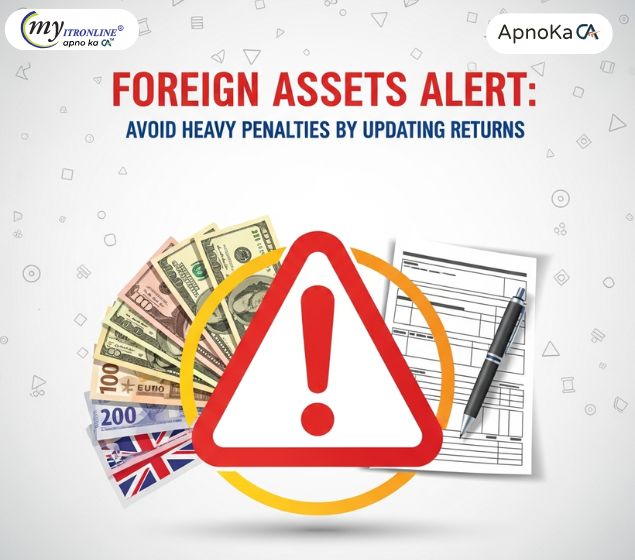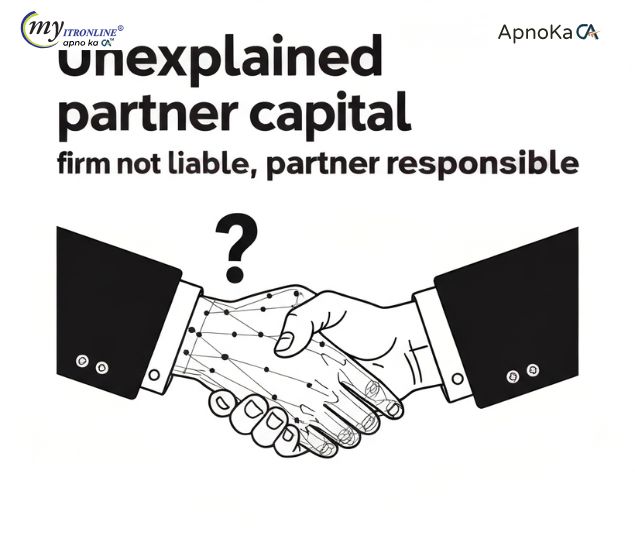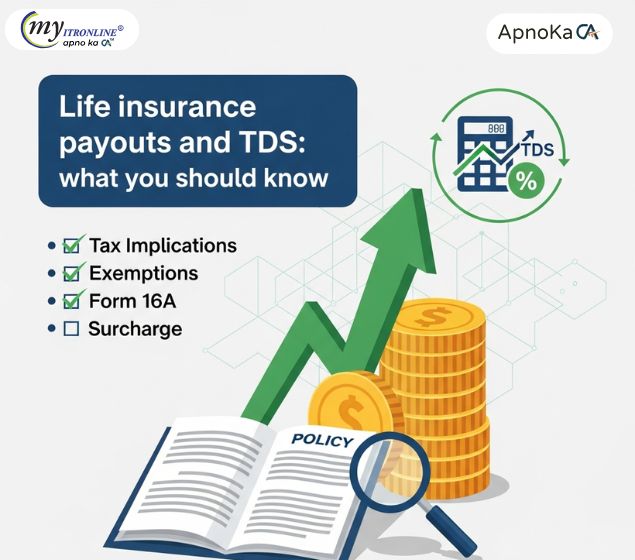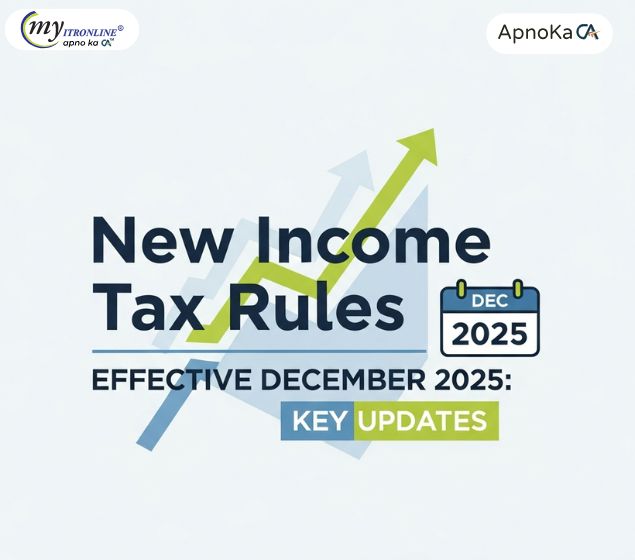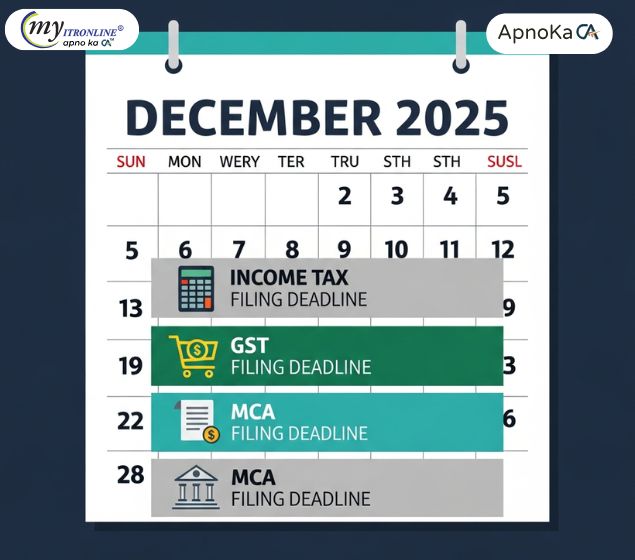Tax Season Success: Get Your Full Section 87A Rebate & Avoid Common Deduction Mistakes in Your FY 2024-25 ITR
Maximize your savings and simplify your ITR filing for FY 2024-25! Discover how to effectively utilize the Section 87A rebate and navigate the complexities of deductions under both the old and new tax regimes. This essential guide empowers you to make informed choices, accurately claim every eligible deduction, and confidently file your ITR to prevent any unwelcome tax notices.
.jpg )
For salaried persons and numerous other taxpayers in India, the yearly task of filing Income Tax Returns (ITR) is an important event. It's not only about adhering to regulations; it presents a chance to minimize your tax expenses. For the Financial Year (FY) 2024-25 (Assessment Year 2025-26), grasping and strategically using Section 87A rebate while accurately claiming deductions is essential in maximizing your savings and, crucially, steering clear of unexpected notices from the Income Tax Department. This comprehensive blog will walk you through the intricacies of Section 87A, the deductions available under both the old and new tax regimes, as well as vital actions to ensure that your ITR is error-free, helping you avoid those unwelcome tax notices.
Understanding Section 87A Rebate: Making Your Tax Liability Nil (or Significantly Reduced)
Section 87A serves as a relief for resident individual taxpayers with lower incomes by effectively decreasing their tax burden. Unlike a deduction that lowers your taxable income, this is a rebate that directly reduces the amount of tax you owe.
For FY 2024-25 (AY 2025-26), the advantages of the Section 87A rebate vary based on the tax regime you select:
- New Tax Regime (Default): If your net taxable income (after applying any allowable deductions under the new regime) is ₹7 lakh or lower, you can avail a rebate of up to ₹25,000. This means that if your tax due before cess is ₹25,000 or less, it will be reduced to zero.
- Old Tax Regime: If your net taxable income (after all relevant deductions under the old regime) is ₹5 lakh or lower, you qualify for a rebate of up to ₹12,500. Likewise, if your tax due before cess is ₹12,500 or lower, it will be brought down to zero.
Important points to note regarding Section 87A Rebate:
- Only for Resident Individuals: This rebate is available solely for resident individuals. Non-resident Indians (NRIs) and Hindu Undivided Families (HUFs) do not qualify.
- Not Applicable to All Income Types: This rebate mainly pertains to tax owed on income taxed according to normal slab rates. It typically does not apply to special income categories such as Long Term Capital Gains (LTCG) from equity shares (Section 112A) or winnings from lotteries and gambling.
- Marginal Relief: If your income slightly surpasses the rebate limit (for example, just over ₹7 lakh in the new regime), a marginal relief provision is in place to ensure that the extra tax burden isn’t disproportionately steep.
Selecting Your Tax Option: Traditional vs. Modern and Their Deduction Framework
For the fiscal year 2024-25, the modern tax system has now become the standard choice. Nonetheless, if the traditional tax system is more advantageous for you, you still hold the option to select it. Your decision significantly influences the deductions available to you.
1. The Modern Tax System (Standard for FY 2024-25)
Although it provides simplified tax brackets and a higher basic exemption limit (₹3 lakh for all taxpayers), the new system comes with limited deductions and exemptions. This makes it appealing for individuals without substantial investments or expenses typically utilized for tax savings.
Deductions permissible under the Modern Tax System:
- Standard Deduction for Employees: A uniform deduction of ₹50,000 applies to salary income.
- Standard Deduction for Family Pension: A deduction of ₹15,000 or one-third of the pension, whichever is lower.
- Interest on Home Loan (Section 24(b)): Applicable only for rental properties. This deduction is not available for self-occupied homes.
- Employer's Contribution to NPS (Section 80CCD(2)): Deduction for the employer’s contribution to your National Pension System (NPS) account (up to 10% of basic salary + Dearness Allowance, or 14% for Central Government employees). This offers significant benefits for salaried NPS contributors under the modern system.
- Contribution to Agniveer Corpus Fund (Section 80CCH): Deductions for contributions made to the Agniveer Corpus Fund.
Generally, you cannot claim under the Modern Tax System:
- Section 80C deductions (PPF, ELSS, EPF, life insurance premiums, home loan principal, tuition fees, etc.)
- Section 80D (health insurance premiums)
- Section 80G (charitable donations)
- House Rent Allowance (HRA) exemption
- Leave Travel Concession (LTC) exemption
- Most other deductions under Chapter VI-A (80E, 80G, 80TTA/TTB, etc.)
2. The Traditional Tax System
This system allows for a wider range of deductions and exemptions, making it advantageous for those with considerable investments and expenses.
Notable Deductions and Exemptions under the Traditional Tax System:
- Section 80C: Up to ₹1.5 lakh for investments such as PPF, EPF, ELSS, life insurance premiums, home loan principal repayment, and children's tuition fees, etc.
- Section 80CCD(1B): An additional deduction of up to ₹50,000 for contributions to NPS (beyond the Section 80C limit).
- Section 80D: Health insurance premiums for yourself, family, and parents (subject to specified limits based on age).
- Section 24(b): Interest on home loans for self-occupied properties (up to ₹2 lakh) and for rental properties (there is no limit on the interest claimed, but loss from house property is capped at ₹2 lakh for set-off).
- Section 80G: Contributions to recognized charitable organizations.
- Section 80E: Interest paid on education loans.
- Section 80EE/EEA: Additional interest on home loans (with conditions).
- Section 80TTA/TTB: Interest earned on savings accounts (80TTA for non-senior citizens up to ₹10,000; 80TTB for senior citizens up to ₹50,000 including fixed deposit interest).
- House Rent Allowance (HRA) Exemption: If you receive HRA and live in rented housing.
- Leave Travel Concession (LTC) Exemption: For travel within the country.
Making informed choices: If your eligible deductions under the previous tax regime (particularly 80C, 80D, and home loan interest) total more than the tax advantages provided by the new regime (including the increased 87A rebate), the old regime may still offer better benefits. Utilize online tax calculators to evaluate your tax responsibilities under both regimes prior to filing.
Avoiding Unwanted Tax Notifications: Common Causes for Discrepancies and How to Mitigate Them
Receiving a notice from the income tax department can be distressing, but it often results from straightforward discrepancies or incomplete information. Here are frequent causes for notices regarding missing deductions and how to prevent them:
1. Discrepancies with Form 26AS/AIS/TIS:
- Reason: The Income Tax Department possesses comprehensive data about your financial activities through Form 26AS (Tax Credit Statement), Annual Information Statement (AIS), and Taxpayer Information Summary (TIS). If the income or deductions you declare in your ITR do not align with the information available to the department, it triggers a notification. For example, if your bank deducts TDS on fixed deposit interest yet you fail to report that income, or if your employer submits investment proofs that do not correspond to your ITR.
- Prevention: Always download and carefully cross-check your Form 26AS, AIS, and TIS before submitting your ITR. Ensure that all income (salary, interest, dividends, capital gains, etc.) and TDS details are consistent with what you declare. If there are any mismatches, get them corrected by the deductor (like your employer or bank) prior to filing.
2. Inaccurate or Inadequate Documentation for Deductions:
- Reason: Claiming deductions without adequate supporting documentation is a frequent error. While you do not submit tangible documents with your ITR, the department can request them later. If you are unable to provide valid evidence, your claimed deductions may be denied, resulting in a tax obligation and potential penalties.
- Prevention:
- Keep accurate records: Store all investment proofs (such as PPF passbooks, ELSS statements, life insurance premium receipts), medical bills and premium payment receipts (for 80D), home loan statements (detailing principal and interest), tuition fee receipts, donation receipts (including the donee's PAN), and HRA proofs (rent receipts, landlord's PAN).
- Only claim legitimate deductions: Avoid inflating deduction amounts or claiming deductions for expenses you did not incur.
3. Selecting the Incorrect Tax Regime or Overlooking the Opt-Out Option:
- Reason: Since the new tax regime is the default, if you wish to select the old regime, you must intentionally choose it when filing your ITR. If neglected, your return will be processed under the new regime, causing all your old-regime deductions to be disregarded, leading to a tax obligation.
- Prevention: Be completely certain about which tax regime you intend to follow for FY 2024-25. If opting for the old regime, ensure you select that choice in your ITR form and accurately input all relevant deduction information. For salaried individuals, notify your employer of your chosen regime to ensure correct TDS deductions.
4. Mistakes in Classifying Income/Deductions:
- Reason: Occasionally, taxpayers might claim a deduction under the incorrect section or mislabel an income source. This can result in processing errors and notifications.
- Prevention: Acquaint yourself with the different sections of the Income Tax Act pertinent to your income and deductions. If you are uncertain, consult a tax professional or utilize reputable tax filing software that assists you through the process.
5. Failure to Report All Income Channels:
- Explanation: Although not strictly an issue of "missing deductions," neglecting to report all sources of income (such as earnings from several savings accounts/FDs, capital gains from the stock market, freelance income, etc.) can create discrepancies with the records held by the Income Tax Department. Once this unreported income is identified, it may also trigger a review of your deductions, even if they were correctly claimed.
- Prevention: Gather all your financial documents – including bank statements, investment statements, and demat account statements – and ensure every single rupee earned is accounted for and reported in your Income Tax Return (ITR).
6. Delayed or Incomplete Return Filing:
- Explanation: Submitting a late or flawed return may draw attention. A "defective return" notice (Section 139(9)) is issued when the ITR has mistakes or is incomplete, often due to discrepancies or incorrect information.
- Prevention: Aim to file your ITR well ahead of the deadline. Carefully review all entries, especially your Permanent Account Number (PAN), bank account details for refunds, and figures from your Form 16, 26AS, AIS, and TIS.
How to Address a Notice for Missing Deductions:
If you happen to receive a notice regarding missing deductions or discrepancies, remain calm. Here’s what you should do:
- Examine the Notice Thoroughly: Grasp the exact reason for the notification and the assessment year it relates to.
- Collect Documentation: Assemble all pertinent financial documents and evidence related to the discrepancy or missing deduction.
- Cross-Check: Contrast the information in the notice with your ITR and supporting documents. Pinpoint the precise mismatch.
- Respond Promptly: Address the notice within the specified timeframe stated in the document. Overlooking a notice could lead to penalties and additional legal consequences.
- Rectify/Revise if Needed: If you discover an error in your initial ITR (for instance, neglecting to claim a legitimate deduction or making a data entry error), you can submit a revised return. For specific processing mistakes, submitting a rectification request may be necessary.
- Seek Professional Guidance: If the notice is complex or you’re uncertain about how to proceed, consult a Chartered Accountant (CA) or a tax advisor. They can assist you in comprehending the notice, gathering the necessary documentation, and responding appropriately.
Conclusion:
Optimizing your Section 87A rebate and accurately claiming deductions are crucial for lowering your tax liability for FY 2024-25. The secret to a worry-free tax season and avoiding notices rests in advance planning and careful record-keeping.
Begin collecting your financial documents early. Recognize the implications of both tax regimes. Utilize technology to download and reconcile your financial data. By being thorough and well-informed, you can confidently submit your ITR, maximize your savings, and navigate the tax compliance process smoothly.
FILING YOUR INCOME TAX RETURN F.Y 2024-25 (A.Y. 2025-2026) WITH MYITRONLINE
The income tax filing deadline is right around the corner. If you haven’t filed yet, do it today with Myitronline! Avoid last minute rush and file your tax return today on MYITRONLINE in Just 5 mins.(www.myitronline.com)
If you are looking for eCA assistance to file your income tax return/ GST, you can opt for MYITRONLINE eCA assisted plan starting
Upload Salary Individual Form-16
If you have any questions with filing your tax return, please reply to this mail. info@myitronline.com OR call 9971055886,8130309886.
Note-All the aforementioned information in the article is taken from authentic resources and has been published after moderation. Any change in the information other than fact must be believed as a human error. For queries mail us at marketing@myitronline.com
Krishna Gopal Varshney
An editor at apnokacaKrishna Gopal Varshney, Founder & CEO of Myitronline Global Services Private Limited at Delhi. A dedicated and tireless Expert Service Provider for the clients seeking tax filing assistance and all other essential requirements associated with Business/Professional establishment. Connect to us and let us give the Best Support to make you a Success. Visit our website for latest Business News and IT Updates.
Leave a reply
Your email address will not be published. Required fields are marked *Share this article
Krishna Gopal Varshney, Founder & CEO of Myitronline Global Services Private Limited at Delhi. A dedicated and tireless Expert Service Provider for the clients seeking tax filing assistance and all other essential requirements associated with Business/Professional establishment. Connect to us and let us give the Best Support to make you a Success. Visit our website for latest Business News and IT Updates.
View articles








